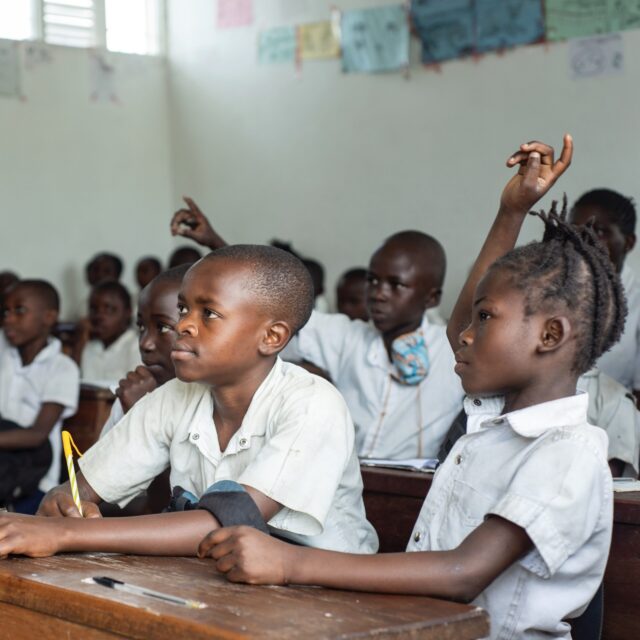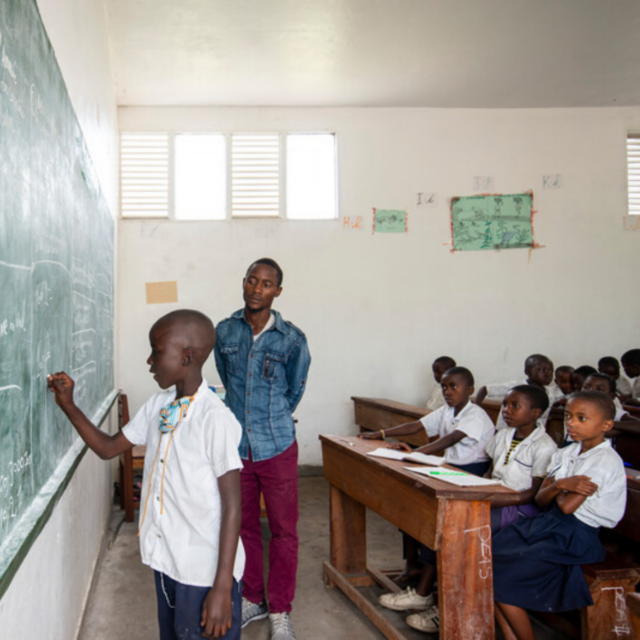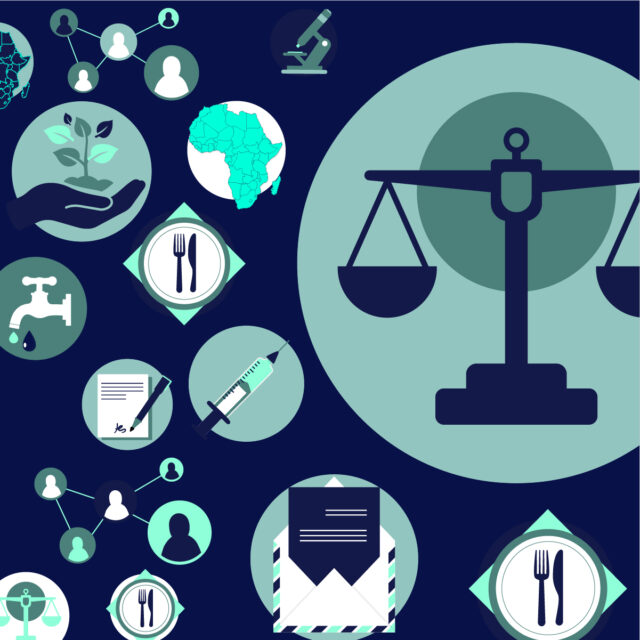Toni Sittoni is a ONE Champion from Kenya.
During last month’s Global Education Summit in London, 11 African presidents made far-reaching promises on financing education through the “Kenyatta Declaration.” Co-hosted by Kenyan President Uhuru Kenyatta and UK Prime Minister Boris Johnson, the summit aimed to marshal the resources for national governments and the international community to address a learning crisis and help millions of children access quality education.
African leaders made some key promises to ensure equitable and high-quality education. Here’s the breakdown:
1. Ensure access to education
African leaders acknowledged that a major barrier to education is no schooling at all. Hundreds of millions of children across Africa still lack access to inclusive and quality education. Children living in poverty or in vulnerable situations bear the brunt of this learning crisis, putting future generations at risk. COVID-19 has also exacerbated the problem and highlighted stark inequalities in accessing education.
To address this learning crisis, 24 African governments committed to investing in ensuring that no child is left behind in accessing quality. This promise is a big win for initiatives to educate girls, children living with disabilities, and other people who have historically been excluded from education.
2. Once children are in the classroom, ensure they are learning
Being in school is not the same thing as learning. According to the World Bank, three out of four third-grade students in Kenya, Tanzania, and Uganda do not understand this simple sentence: “The name of the dog is Puppy.” Even fewer children are able to read a short story by their 10th birthday.
Thanks to the school, we expect students who are able to interpret information, form opinions, be creative, communicate well, collaborate, and be resilient. However, the reality is that millions of youth are entering young adulthood without even the basic numeracy and literacy skills needed to carry out a simple kiosk transaction, read basic safety instructions, or understand a public document.
During the education summit, African governments promised to ensure more children have minimum reading proficiency and to implement flexible strategies to address learning inequalities within countries.
3. Increase domestic education spending
The Kenyatta Declaration also commits to improving learning outcomes in education systems and employing proven techniques and methodologies to yield better results for students. It further promises to strengthen the capacities of teachers and to leverage technology-supported learning to even out the current global digital imbalance.
African leaders recognize that millions of children are not accessing a full cycle of quality schooling. Part of the issue is that domestic budgets have not been scaled to meet the need. To address this funding shortfall, national governments must leverage public resources.
The African leaders promised to increase government spending on education, with a goal of hitting the global benchmark of spending 20% of their national budgets over the next five years. Current allocations by most African countries average about 15% of national budgets.
Beyond increased budgetary allocations, the leaders also promised to focus on equity and efficiency in public spending to ensure every dollar goes as far as possible to improve learning, with a focus on marginalized students.
4. Increase use of data to better understand the progress
A big reason the learning crisis persists is that many education systems across Africa have little information on who is learning and who is not. The lack of reliable data makes it difficult for governments to address the issue.
During the summit, African leaders promised to provide more data and better evidence and to track and monitor equitable allocation and efficient use of public spending on education.
These steps are a bold call to action for Africa, particularly with COVID-19 straining national economies and budgets. But future generations are counting on African leaders to translate these promises into real action. The Kenyatta Declaration will serve as a roadmap to hold African leaders accountable for ensuring inclusive and quality education for all children in their countries.



